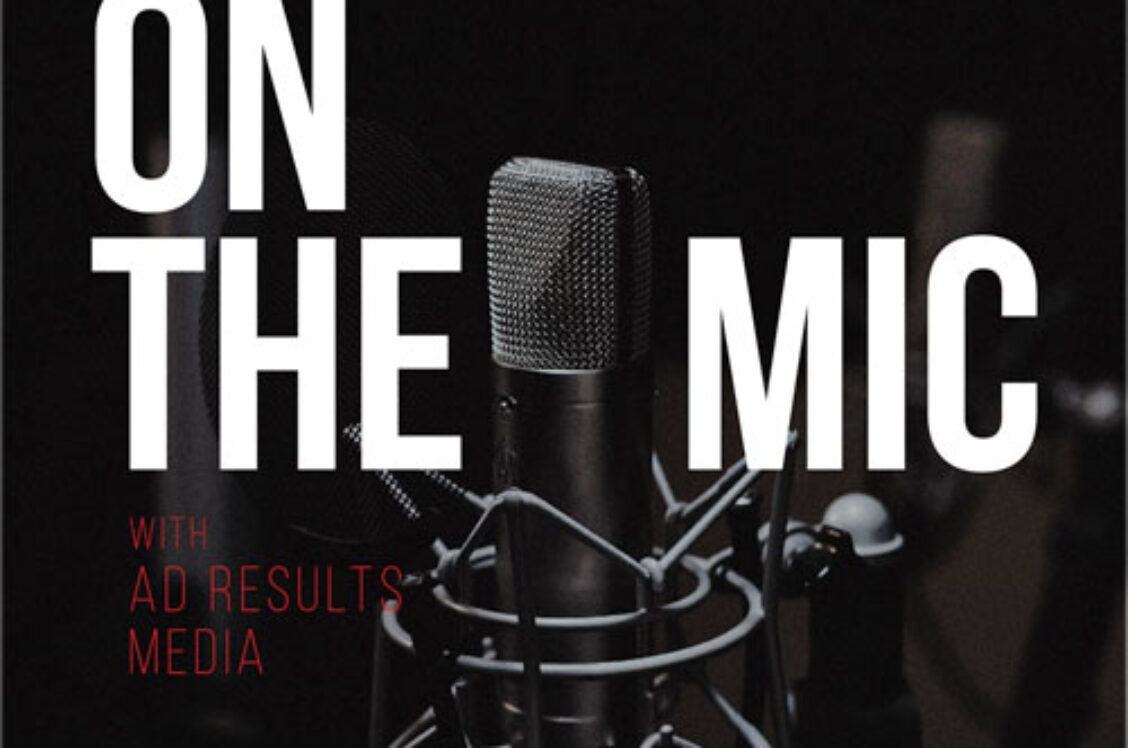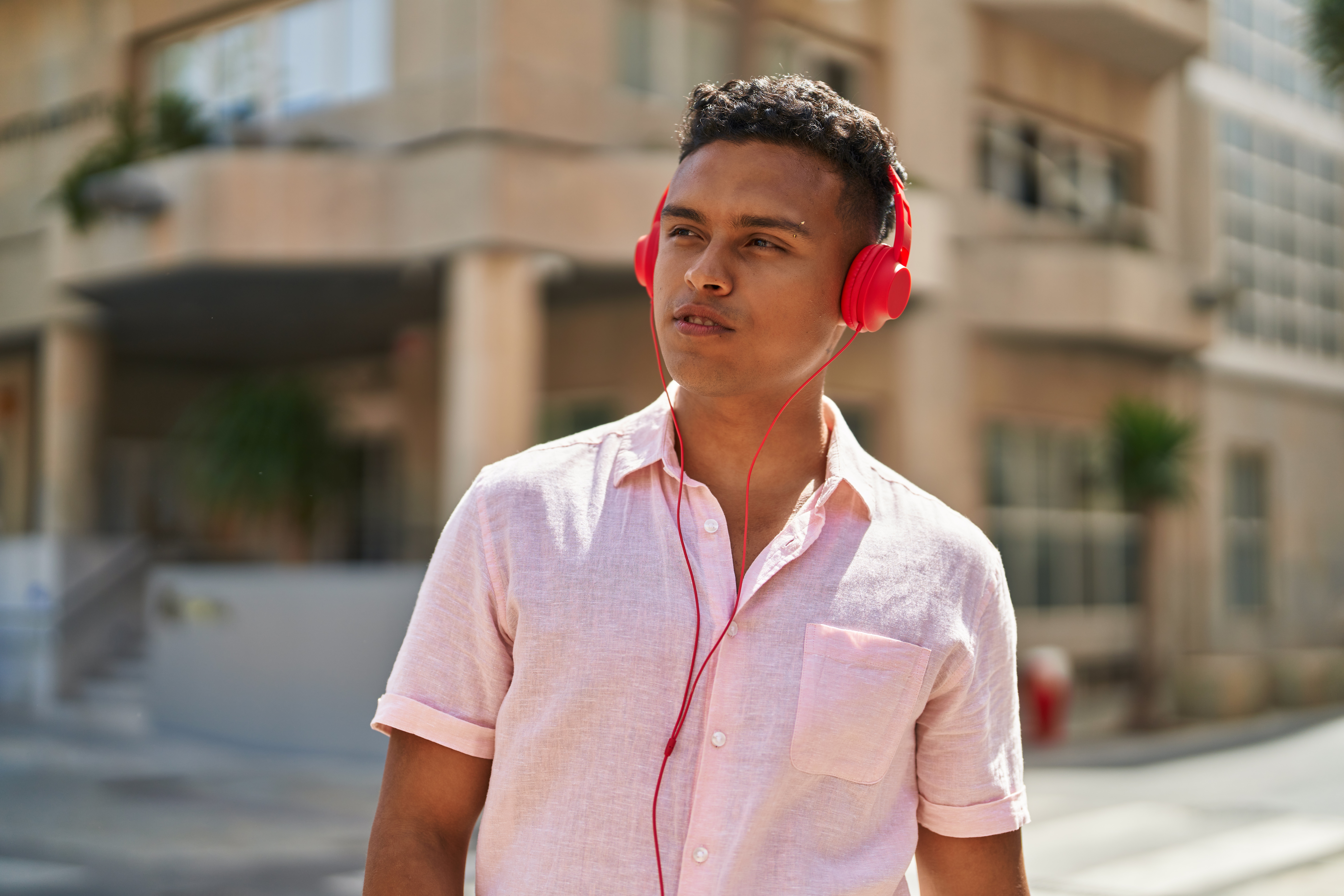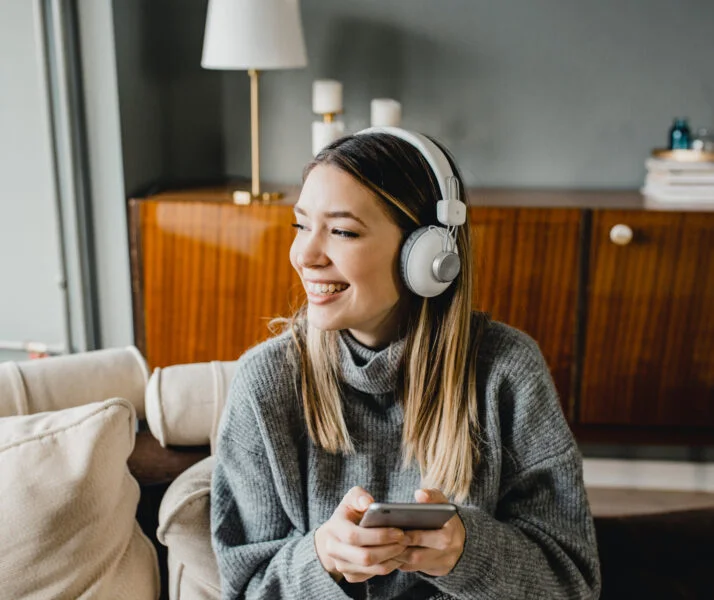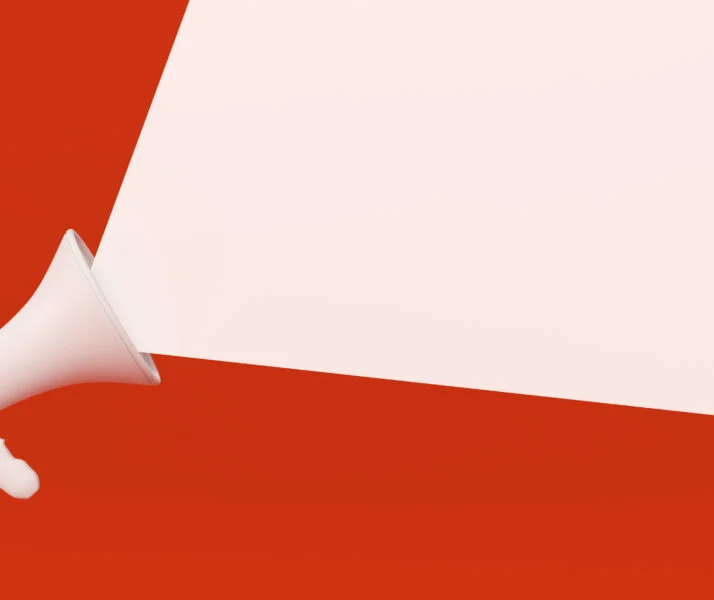
In this episode we put “Copywriting 101” on a brief hold in order to dive into a fascinating interview with Hernan Lopez, Founder and CEO of Wondery. Hernan, along with Mindshare’s Neurolab, recently released an exciting study titled “Your Brain on Podcasts” in which they measured second by second changes in electrical brain activity as well as physiological changes such as heart rate revolving around podcast and social media advertising.
Podcast Transcript
(0s):
Podcasts has been described as experiencing a meteoric rise in the past year, according to recent metrics, there are currently more than 700,000 active Podcasts, totally over 29 million episodes in more than 100 languages available to the average consumer. And with more and more hosts, working to connect with listeners on a more personal and emotional level. It’s no surprise to learn. That sound is the most effective way to build trust among consumers. In this episode, Nathan spell, and I are putting Copywriting one-on-one on a brief hold. As we take a look at the recently released study Your Brain on Podcasts, which was jointly produced by Wondery and mind shares Neurolab today, we will be speaking with a non Lopez, Founder and CEO of Wondery, who will be leading us through the study of trust and emotion in the podcast advertising space.
(43s):
So let’s get to know that’s the great thing about stamps.com. They grow with you as much as I had a clinical way to get back to my sleep number bed. I love my third love bras. They’re hands down the most comfortable bras I’ve ever owned. I love making blue apron and they love it. It’s my me time so much for joining us today. Most of our listeners will be familiar with you and with Wondery, but for those who aren’t as fully emersed in the Podcast industry, as we are, would you mind introducing yourself in talking a little bit about the company?
(1m 25s):
Yes, I am the founder of Wondery. We started the company about three years ago. We’re best known for shows like dirty John Dr. Death, the Shreem next door, but we also make some of the most engaging ongoing shows like Business Wars, American history, tellers, imagine life and the brand of Wondery a known for what we call a emotionally mercy storytelling shows that make listeners feel are in the middle of this story as the story’s happening. And we also do some fun comedy Interview shows like life is joy, we just do long. So we are here to talk about Your Brain on Podcasts, and there’s so much to cover there, but first, could you just talk about why Wondery commissioned that study in the first place?
The Neuroscience Behind Podcasts: Why Wondery Explored Trust and Emotion
(2m 13s):
It’s funny before I started Wondery and before I even was a podcast listener, I was surprised by every time I heard somebody recommend a podcast to me, they were so excited and so worked up on. So they just could not stop talking about how much they loved Podcasts a or B. And, and in many cases they were talking about serial that Podcasts that really started this new golden age of 40 storytelling. So I kept wondering, is there a something that happens in the brain that has different when people are listening to a podcast from anything else? Cause they just couldn’t see that reaction from any almost anything else.
(2m 55s):
And when fast forward four later, I I’m reading an issue of Adweek and I get article about my insurance Neurolab and they are, I know the people in mind as I start reading and the article describes that they launch a, a neuroscience research center within my insure and the, the first started by that date, which is called the power of Audio. And, and I started to read the headlines of the study. And one of the interesting data points, I, I found intuitively intuitively obvious or intuitively true, but I hadn’t seen any proof for you before.
(3m 45s):
And they said the fact that people respond to Audio in a much more powerful way that they respond to visuals. And I thought I had to read it and how to get in touch with him and find out more. Can you walk us through this study itself and what sort of methods were used and what exactly the results were?
Measuring Emotional Impact: EEG, Skin Response, and Memory Encoding
Yes. That we clarify that there are two studies. There’s a study that my insured deed on its own, but it’s important to talk about that one in particular, they did, they use EEG, electroencephalographic scanning galvanic skin response.
(4m 26s):
So EEG is obviously a lot of people have done EEG for the medical treatment is when they put sensors somewhere in this case, they are all in attached to your head and they say, as we measure, and I I’m sure I’m going to sound like I know what I’m talking about, but the, the, the there’s just the way they measured changes in the electricity and, and in, in your brain. So that the measure that they exchange, that the intensity of emotions and the valence of emotions, and they measure the degree to which memories are being formed. What’s, what’s called memory in coding. They also complemented with something called galvanic skin response.
(5m 9s):
This is what they put a sensor attached to your skin, and they see whether your, a scheme again, changes the, the ritual, which they conduct electricity. And then finally they added eye movement research and implicit trust association research. So combining all of those research techniques, they want it to get to the bottom of whether people respond to audio, visual ads versus visual only ads versus audio only ads in a different way.
(5m 49s):
And these site that they came up with is that there are certain that obviously the smartphone how’s become the number one screen for all of us. And they noticed that most modern consumers engage with smartphones using only one side at a time. They are either looking at their feet. We all know the screen without the headphones on, or the listening to something without looking at the screen. So they had, they, they, they want it to test a very long held assumption that visuals are more important than Audio. And, and that’s something that most people assume even meet a planner assessment, which is why so much money, so much more money spending a visual media than, you know, Audio Media.
(6m 38s):
And they even asked people that respond to this of this survey, that the respondents of the study before they started this study. Do you think that you prefer visual stories or Audio stories that are most people said, yes. I prefer a visual stories. So then they attach all the sensors to the brain and they start to measure what’s happening in reality. And what they found was fascinating. First, they found that Audio only ads were 21% more powerful. They had higher emotional intensity to them, a visual only ads, right? So Audio alone is more powerful than visuals alone.
(7m 19s):
And they also found that Audio only ads had 89% of the emotional intensity of audio, visual ads. Obviously you’re always going to get, or the highest response to an ad. We’ve both sighed sound and motion butt. In this case, they prove that most of the power comes actually from the sound and not from the visuals. And do they know what causes that difference? Why Audio is more effective in that way than video or visuals alone? No, they don’t explain that in the study, but I’ve read, I’m sure you guys have heard multiple times that sounds East perceived by your Brain faster than any other sens.
(8m 5s):
And then those the other, the, the, the, the other long held believe that when people are listening to something, they make a mental picture in their brain that is better than anything else that they’re seeing. And there’s no real way to test that assumption, but that’s an explanation that I’ve heard about why Audio is so emotionally powerful. I just want to clarify both for myself. And I think for listeners, are we talking about the initial study at this point? Or is this yeah, Yes. So this has all the initial study. And so when I read all of that, I thought that that would be an opportunity to specifically test Podcasts because there’s a study was about audio in general, and I didn’t want to test Podcasts, and I wanted to compare Podcasts, not to every other kind of Audio or not to any kind of visual ads I wanted to tell the, make Podcasts, compare themselves too.
(9m 11s):
Video ads on smart phones. Of course, you guys are obviously are in the media planning world. And so you guys will resonate video ads. These smartphones are the only other units that can communicate an emotional message and coincidental are not, the CPMs are similar to Podcast CPMs, and there are more widely used than Podcast today for a number of reasons. So we, the design of this study center around a two of our Podcasts, a storytelling, one, a doctor death, and an interview one life is short.
(9m 51s):
We just alone. And two brands, one a was a very widely known direct response advertise for the other one is a streaming service. And we, we run, we tested Podcasts ads in two versions, hosts red and produce a red against real at that both of these brands had run on those Media On, on social media video, tailor to ads and to deliver to a smartphones. And we want it to make sure that we’re testing them in the same length. So we tested 15 second ads and 62nd nuts in both cases, Podcasts versus social media video Over the, over the results of that study.
Podcast Ads vs. Social Video: Trust, Attention, and Emotional Retention
(10m 40s):
And how do they differ from obviously they differ and what we were looking for, or what you were looking for in that study, but what exactly were the results? So the way that that study is what we call, we ended up calling Your Brain on Podcasts and essentially the, the, the difference between the study and the other one, it was a specifically focus on Podcasts. One of the first things that we found surprising was we did an implicit trust association study on both of those brands before and after being exposed to an ad. And we found that after a single exposure to a Podcast Ad trust in the advertised brands went up, whereas after a single exposure to a video On for the same brand trust in the brand went down, ah, that to me was remarkable.
(11m 36s):
Yeah. I mean, it, wasn’t remarkable that trust in the brand, after listening to a podcast, went up the West remarkable, lost that trust. After listening, after watching the ad wind down. The second thing that we found very interesting data that was consistent with what they had seen in the prior study was that the emotional intensity for a Podcasts Ad goes up as time goes by. So if there’s a peak towards the end of the ad, whereas in social media video at the emotional intensity, and also the memory of coding go down towards the end.
(12m 18s):
And this is very important for brands to realize because those last five, 10, however many seconds of the Ad are exactly are typically the moments when we’re talking about that brand. So you have this dichotomy of when people are listening to a podcast, their attention goes up at the end and when people are watching the ad goes down. And so that is exactly when you want people to remember more, What are the results mean for advertisers and publishers in terms of how they should think about prioritizing their ad spend And I’m biased? So, of course, I don’t think that people are going to be surprised to, to hear me say that they should be considering adding more Podcasts pen.
(13m 5s):
I, I think the way that, you know, Podcasts are making a very interesting transition eat used to be, I have an experiment and then went into a nice to have where the point where Podcasts are going from a nice to have to a must have in every Media plan, because consumers are spending so much time on the smartphones and they are doing many things on the smartphone. But most of the things that are to do with a smart phones are done in short periods of time Podcast, our, one of the only meters where listeners or consumers engaged with for long periods of time.
(13m 48s):
And that’s the only way in which you can engage with that for long periods of time. I totally agree. And I, I think a lot of folks here would also agree with that. I can’t tell you the number of times that I hear people jump in and they’re like, Oh man, I’ve listened to all of these episodes while I was, you know, traveling to visit my family or going on vacation. So, And other very interesting, a slight that Mindshare created, and he says, Podcasts memory’s are likely to sustain over time, give her this strong emotional component you guys probably have heard, or maybe in some of your experience with it, the anecdote of the mother who lets their kid put their hands on a hot stove.
(14m 31s):
So they, they can remember that. That’s the way to, they’ll never forget that if you put your hand on your heart stops, but you tell the kid, don’t put your hand on a hot stuff, that the, the Cape will have to do it. So emotional memories are more durable. I mean, that, that’s something that good teachers know that good storytellers know. So given Podcasts has such a strong emotional component. The memories that they create are likely to sustain over time. Well, we, we may be a little biased as well, but we’ve obviously felt that Podcasts Advertising gives brands a real leg up, especially when it comes to fighting to earn that trust and attention. You know, we’ve known that was the case, I think, but it’s really cool to read through the study and see, you know, that competitive advantage of like quantified, I think, especially at the level of the brain.
(15m 21s):
And then with the second study that you commissioned to see, you know, how those different formats play out. Is there anything that we miss about this study that you’d like to add before we let you go? Another a very interesting side of the test is that we, we tested our two things. Actually. One is that we tested hosts, read ads versus a producer write ads because we, we just want to see how much stronger. We all know that in the Podcast space, Dr. Advertisers prefer a host read ads, whereas brand advertisers are generally in different about them. We, we, we, we support both kinds of a form on that.
(16m 1s):
So the only one form that we don’t support our pre-produced radio ads, cause we, we don’t want Podcasts to sound like radio. And we found that host read ads where the best performing for muddy indeed they had 30% higher emotional intensity on social media ads, video ads. Wow. But even producer rate ads had 23% higher emotional intensity. So the difference between even as a producer read ad and a video that was much bigger than the difference between approves and a host rate Ad. And the other part of this story is that we all of the, of the studies that we, we asked, we, we try to test whether a kind of Ad fits better into a kind of a pocket of an environment, specifically storytelling for a higher emotion, an interview for higher attention.
(16m 60s):
That that’s what we found. We found that emotional intensity for the host readouts in story-telling environments is higher than it is for Interview style environments. Whereas memory in coding for a host, whether that’s in Interview style environments is higher than it is for storytelling environment. So that, I mean, the, the, the headline for this slide would be, make use emotionally intensive copy in storytelling environment and use a factual copy in Interview style environments. But I didn’t, I have, at the end of the day, you guys always do, you know, do what you do best, which is a, have the talking points to deliver to the host.
(17m 53s):
And they let the host put those talking phones in their awards. And that, that was going to be the tried and true. We have the best way of how you are as to be successful. I love that we were on the right track. Yeah. Well, thank you so much for joining us today. This is really been fascinating. I’ve, I’ve really loved listening to you talk about this in getting to read it prior to having you on. And I’m really excited to see how all of this continues to grow and evolve. Thank you very much was such a pleasure to be talking to you guys. Congratulations on launching a podcast. I listen to episode one that still need to follow the future episodes. And please call me anytime Copywriting of somebody that I feel very passionately a passionate about was my first job.
(18m 40s):
That’s how I started in to work at Media. And, and I, I, I, I think that a good Copywriting is under-appreciated and he’s way more important than people realize If you enjoyed this episode, be sure to subscribe for updates on future episodes and leave us a comment with your feedback, questions, or ideas for future segments. Please be sure to join us next time. As we dive back into Copywriting one Oh one voice tone and content in the important distinctions between the three, this podcast was written and hosted by me, Lindsey Boyd and Nathan spelled with sound mixing and editing by Freddie Trey. Hope.
(19m 20s):
This podcast is an Ad Results, Media production.


